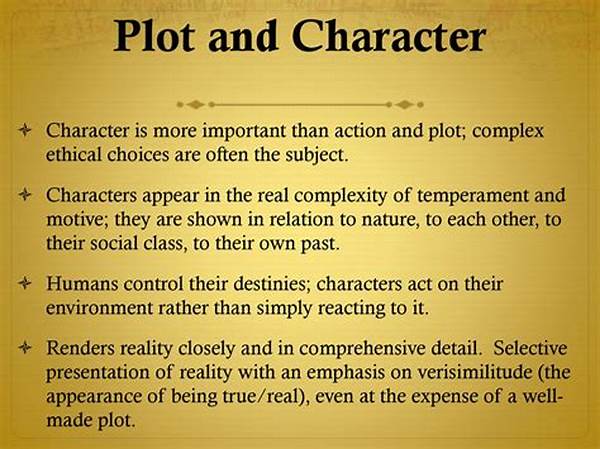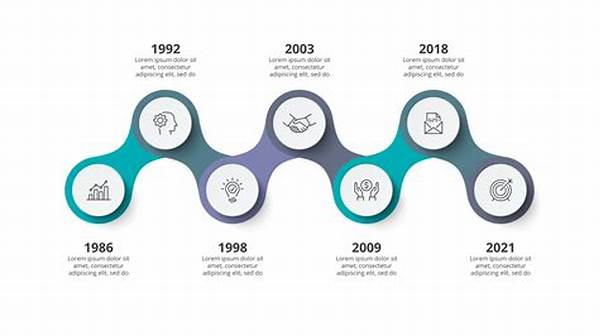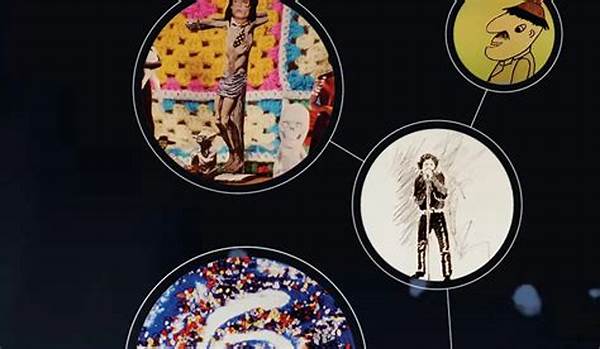Cartoons—those colorful snippets of our childhood—seem pretty straightforward, right? Think again! Beneath their vibrant exteriors, many cartoons explore challenging ethical dilemmas that might just surprise you. By weaving together humor, adventure, and drama, these animated gems subtly introduce complex ethics in cartoon plots to audiences of all ages. It’s time to recognize that cartoons aren’t just light entertainment; they’re masters at sparking conversation about right and wrong, nudging us to ponder ethical questions that resonate deeply with our everyday lives.
Read Now : Light-hearted Animated Shows For Downtime
Exploring the Depths of Cartoons’ Ethical Complexities
Have you ever rewatched a cartoon from your childhood and suddenly realized it’s deeper than expected? This isn’t just nostalgia hitting hard—it’s the complex ethics in cartoon plots subtly winking at you through their vivid stories. These cartoons, from family favorites to cult classics, aren’t just about slapstick laughs or epic adventures. They’re layered with morality tales that address issues like honesty, justice, equality, and empathy. They challenge viewers to reflect on their values while still being endlessly entertaining. When you pause to reflect on certain scenes or storylines, you begin to see the nuanced ethical challenges characters face. The brilliance of these cartoons lies in their ability to couch serious discussions within the fantastical, leveraging exaggeration and whimsy to coax viewers into introspection.
Bullet Points of Complexity in Cartoon Ethics
Recognizing Ethical Nuances in Beloved Cartoons
It’s surprising how often cartoons are underestimated in their capacity to teach valuable life lessons. Think about it: while providing endless entertainment, they’re subtly showcasing complex ethics in cartoon plots, which challenge audiences—not just kids! Animated shows like “Avatar: The Last Airbender” or “Adventure Time” unravel profound themes related to forgiveness, sacrifice, and conflict resolution. Remember how Zuko’s struggle between family loyalty and personal integrity kept viewers guessing all season long? That’s a masterstroke in blending entertainment with ethical education.
Beyond enchanting plots, these cartoons provide characters that tackle real-world ethical issues within their fantastical settings. This clever mix redefines boundaries, enabling audiences to better appreciate the nuances of life. It’s not merely about right or wrong but understanding perspectives, embracing differences, and learning about the world’s greys. Cartoons offer viewers a safe space to experiment with ideas and decisions, pivotal as they shape young and impressionable minds.
How Cartoons Personify Ethics
When discussing how complex ethics in cartoon plots are ingeniously crafted, several points come to the fore:
1. Storytelling Magic: Cartoons seamlessly interlace ethical questions while keeping audiences entertained.
2. Character Dualities: Heroes showing flaws and villains revealing redeeming traits echo real-life ethical ambiguities.
3. Allegorical Messages: Narratives subtly reflect real-world ethical dilemmas, making abstract concepts relatable.
4. Role of Humor: Comedy’s intervention in serious moments aids in digesting complex ethical debates.
5. Emotion-Driven: Emotional arcs drive ethical learning, as viewers bond and empathize with the journey.
6. Consequences: Characters face outcomes of their ethical choices, painting vivid consequences for viewers.
7. Symbolic Representation: Animation allows for creative symbolism, making intricate ethical issues easier to grasp.
Read Now : Acclaimed Family Animation Movie Classics
8. Empowerment of Choice: Viewers witness characters’ decisions, empowering them to reflect on their own ethical stance.
9. Interactive Space: It encourages viewers, especially the younger audience, to engage with ethical concepts creatively.
10. Timeless Appeal: Despite evolving times, these plots retain relevance, proving the timeless nature of ethical quandaries.
Cartoons: A Unique Medium for Ethical Exploration
Cartoons hold a unique position in storytelling, merging visual appeal with profound narrative depth. They’re not just for kids but cater to all ages. Why? Because the complex ethics in cartoon plots go beyond mere entertainment. They’re deliberate in presenting challenges and painting any given situation with multi-dimensional shades of morality, making audiences think twice about decisions they once thought were straightforward. It’s not about spoon-feeding wisdom; it’s more about seed-planting, quietly encouraging critical thinking.
In an ever-polarizing world, engaging with such content, where morals are playfully questioned and deconstructed, can nurture a new generation that’s adept at empathy and understanding. It’s a reminder that every decision carries weight, and getting it right requires thought, perspective, and sometimes a little imagination. Cartoons, hence, function not merely as a platform for laughs but as a catalyst for ethical discussions that transcend the screen and speak to our everyday experiences.
The Value of Revisiting Old Favorites
Remember those afternoons where the biggest worry was whether your beloved cartoon character would beat the villain? Through the simple guise of fun, viewers were gently nudged into deep waters teeming with ethical questions. In a society where black and white answers rarely suffice, cartoons offer a prismatic view of ethics. They encourage reassessing traditional beliefs, enabling both the young and old to navigate the intricacies of real-life choices gracefully.
The complex ethics in cartoon plots provide an intergenerational bridge, unlocking conversations between young viewers and their older counterparts. Suddenly, entertainment transforms into an enlightening experience, fostering dialogue on essential human values. They might not have the gravitas of a classic novel or the scholarly reputation of a textbook, but they hold the power to teach in ways uniquely theirs. It’s time to embrace cartoons not just as kiddie distractions but as an influential tool in shaping society’s ethical landscape.
Conclusion: Cartoons as Ethical Educators
Unpacking the complex ethics in cartoon plots reveals a dynamic method of teaching that influences much more than we realize. With the blend of adventure, humor, and ethical dilemmas, they provide fertile ground for conversations about moral values and decision-making. In a rapidly evolving world, they provide a constant—an affirmation that ethical learning can be effective, engaging, and animated. Cartoons serve as a bridge to deeper understanding, igniting imaginations and prompting curiosity about ethics not just within their fictional realms but in the real world too.


